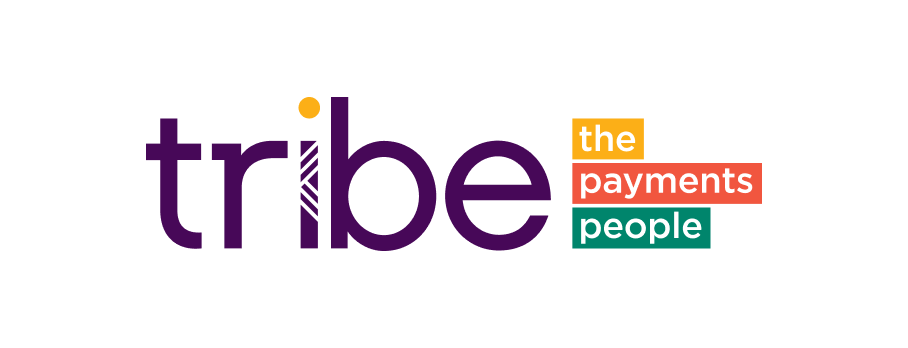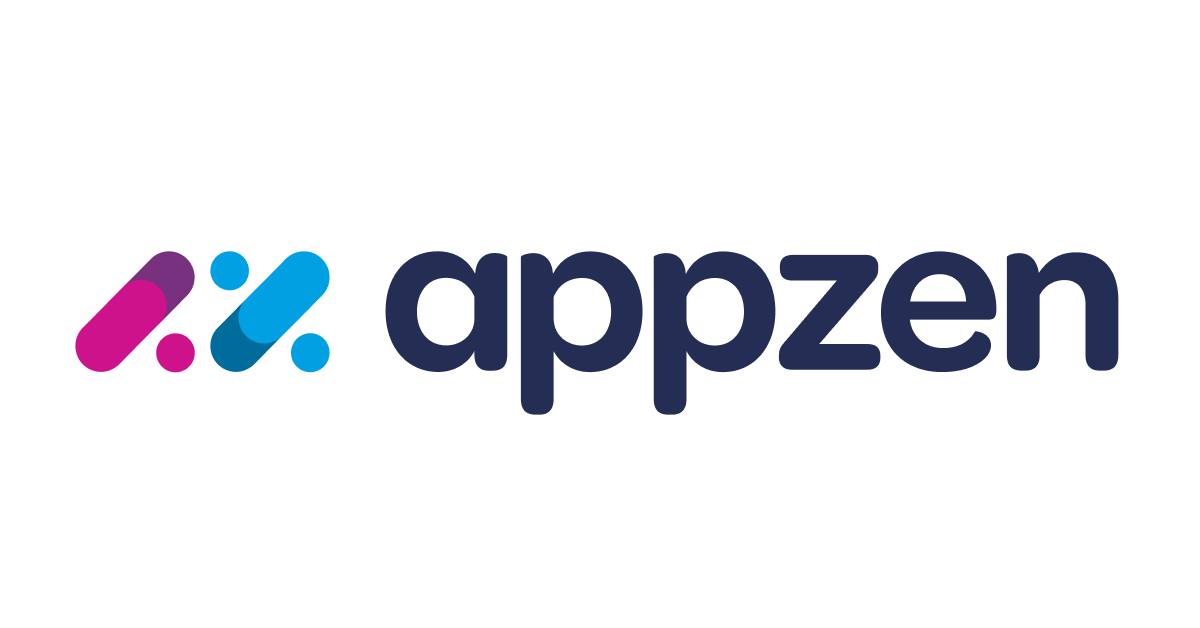Published
- 06:00 am

TransFICC, the specialist provider of low-latency connectivity and workflow services for Fixed Income and Derivatives Markets, today announced the appointment of Gary Vann as Head of Sales.
Based in London, Gary is responsible for business development globally. An industry veteran, he has worked in Fixed Income sales for over 30 years, most recently at Nasdaq Fixed Income where he was Head of EMEA Sales and Account Management. Previous roles included working at BGC Partners broking US Treasuries and $IRS, at BrokerTec in US and CAD Bond sales, and RMJ Securities as a US Treasury Broker.
“Gary joins at a time when we have multiple banks live across Government and Corporate bonds, IRS, Repo and MBS. His extensive experience and senior industry relationships will help TransFICC to engage with new clients who need modern technology solutions to help them navigate the changing fixed income market,” said Steve Toland, Co-Founder of TransFICC.
He added: "As we automate a growing number of complex e-trading workflows and connect with new trading venues, we are continuing to add industry-leading talent to our team. Despite the obvious challenges of the pandemic, we have grown by 50% during 2020.”
During 2020, and throughout the Covid pandemic, TransFICC has continued to hire in Engineering and Management including:
Damian Krogul (Network Engineer), Tom Johnson (Senior Software Engineer), Richard Osborne (Software Engineer), Jenna Carruthers (Office Manager), Nina Koritchneva (Business Analyst), Kate Posener (Software QA Engineer), and Dmitry Ogloblin (Software QA Engineer).
“Since March, when we began working exclusively from home, we have adopted Remote Pairing, where two Developers are able to code in pairs using virtual desktops. This has been very successful, meaning that new Developers have been brought up to speed and quickly started to deliver high quality, fast and robust code to our growing list of clients,” said Tom McKee, Co-Founder of TransFICC.
TransFICC resolves the issue of market fragmentation by providing banks and asset managers with a unified low-latency, robust and scalable API. Its ‘One API for eTrading’ platform provides connectivity to multiple trading venues while supporting a variety of workflows across asset classes such as Rates and Credit Bonds, Repos, Mortgage Backed Securities and Interest Rate Swaps.
Related News
- 05:00 am

Latest research predicts that the global number of outlets accepting cards will near 100 million by the end of 2025. The COVID-19 pandemic has accelerated the move to contactless payments, which will boost card acceptance
Nearly a million new card-accepting outlets in India in 2019
RBR’s new report Global Payment Cards Data and Forecasts to 2025 reveals the number of merchant outlets accepting card payments worldwide grew by 4% in 2019 to reach 74.5 million. Much of the growth was driven by government initiatives, with some markets seeing considerable increases in card acceptance. Of these, India stands out, where the number of outlets accepting cards rose by 959,000, an expansion of 40%, largely as a result of the government putting pressure on banks to recruit more merchants.
Acceptance of UnionPay increases in Europe and Asia-Pacific
The study reveals that UnionPay has overtaken Discover to become the most widely accepted card scheme. At the end of 2019, UnionPay cards could be used at 59.3 million merchant outlets, representing 80% of the global total. Europe saw the greatest increase in the proportion of merchants accepting UnionPay, with particularly strong growth in Russia.The scheme was also accepted in India for the first time.
Discover is the second most commonly accepted card scheme. This scheme benefits from reciprocal network-to-network agreements with UnionPay in China, JCB in Japan and BC Card in South Korea, meaning that Discover can be used at all outlets in each of these markets. Visa cards are accepted at marginally more outlets than Mastercard, making Visa the third most commonly accepted card scheme worldwide.
Visa and Mastercard are the most widely accepted schemes outside of China
The high proportion of merchants which accept UnionPay can be attributed to the size of the Chinese market, which accounts for almost a third of merchant outlets worldwide. RBR’s analysis shows that if China is removed, acceptance of UnionPay falls to 70% of the remaining outlets.
With China excluded, Visa and Mastercard are the most widely accepted card schemes, each accounting for 48.5 million outlets or 95% of the total. The schemes’ sub-brands Visa Electron and Maestro are accepted at a similar number of merchants as Visa and Mastercard in the majority of markets. China and the USA stand out as exceptions, with neither sub-brand being accepted in China, and only Maestro accepted in the USA, at just under a half of outlets.
Number of Merchant Outlets by Scheme Worldwide, 2019 (million)

Source: Global Payment Cards Data and Forecasts to 2025 (RBR)
Acceptance of three-party schemes extends beyond traditional outlets into retail locations
American Express is accepted at 52% of outlets worldwide and Diners Club at 48%. Whilst their use is often focused on traditional travel and entertainment outlets such as hotels, restaurants and airlines, there has been a shift, as the schemes expand into everyday locations. In the majority of markets, Diners Club can be used at the same outlets as Discover. China is a notable exception as the agreement with UnionPay does not cover Diners Club, contributing to the scheme’s lower overall acceptance compared to Discover.
JCB is accepted at 74% of outlets worldwide, higher than other three-party schemes owing to its universal acceptance in China.
Cashless payments driving growth in acceptance
RBR forecasts continued growth in the number of card-accepting merchant outlets worldwide, rising from 74.5 million at end-2019 to 95.9 million at end-2025, largely driven by government initiatives to promote cashless payments. The COVID-19 pandemic is encouraging use of contactless payments over cash, which will in turn boost the number of EFTPOS terminals.
Daniel Dawson, who led RBR’s Global Payment Cards Data and Forecasts to 2025 research, remarked: “COVID-19 has made contactless technology more appealing and encouraged some merchants that were previously reluctant to accept cards to start doing so.”
Notes to editors
These figures and insights are based on RBR’s study, Global Payment Cards Data and Forecasts to 2025. For more information about this report or to discuss the findings in more detail please email Daniel Dawson (daniel.dawson@rbrlondon.com ) or call +44 20 8831 7310.
RBR is a strategic research and consulting firm with three decades of experience in banking and retail automation, cards and payments. It assists its clients by providing independent advice and intelligence through published reports, consulting, newsletters and events.
The information and data within this press release are the copyright of RBR, and may only be quoted with appropriate attribution to RBR. The information is provided free of charge and may not be resold.
Related News
- 03:00 am

United Fintech, a ground-breaking new concept which enables banks and financial institutions to accelerate access to innovative digital technology from a wide range of fintechs specialising in capital markets, launches today.
United Fintech will provide banks and financial institutions with easy access to the newest technology and accelerate implementation of these proven solutions. Its focus is on facilitating banks and financial institutions in their transition to a digital world.
Over the next five years, United Fintech plans to acquire and scale up a range of innovative small to medium sized engineering-led fintech companies, all with a proven capital markets product. The United Fintech management team, carefully selected for their exceptional track records within global financial institutions or fast-growth technology firms, will work in partnership with the founders of these fintechs, scaling them into global organisations.
United Fintech is the brainchild of Christian Frahm, one of Europe’s most successful fintech entrepreneurs, with over 20 years of global experience from successful ventures within financial technology. As Founder and CEO of United Fintech, Christian Frahm brings a wealth of experience from founding and being CEO of his own fintech business (taking it from scratch to 120M USD exit). In addition, he has experience from leadership positions in two of the biggest fintech successes over the past few decades: Saxo Bank and Bloomberg.
Christian Frahm comments: “Most fintechs globally focus on disrupting banks. We believe in the opposite. We believe banks serve as a core part of our society and we want to partner with banks to help them to transition to a digital world. United Fintech can help banks and financial institutions to access the latest technology and can also help with implementation including technical onboarding, vendor onboarding, technical due diligence and credit due diligence.”
Former MD of Jefferies and Goldman Sachs Appointed
Tom Robinson has been appointed Partner & Head of Sales at United Fintech. He joins from Jefferies where he was Managing Director and Head of e-FX Sales. His career includes almost a decade at Goldman Sachs as Managing Director and Global Head of e-FX Sales. Tom has also held sales roles at Barclays Capital and Bloomberg.
Tom Robinson says: “The timing is perfect for United Fintech’s launch – banks know they need to engage with fintechs and we are ideally placed to help them to execute their fintech strategy whilst also helping the fintechs to gain a seat at the table.”
Acquisition of NetDania
United Fintech has completed its first acquisition, gaining a majority stake in NetDania, a leading Danish fintech which provides market data, APIs, market terminals, charting components and full white-labels – whether web, mobile or desktop.
Thomas Elster, CEO, NetDania, says: “We are very excited about working with United Fintech to grow our business. NetDania has an excellent product range that already serves some of the world's largest financial institutions. The timing is right for us to take this step to increase our reach.”
United Fintech plans a series of strategic acquisitions which can enhance all aspects of banks and financial institutions’ operations. Its portfolio will include an extensive range of products from trading platforms, liquidity management and regulatory reporting tools through to AI and machine learning applications, Big Data tools, institutional Blockchain, Bots and Virtual Assistants.
United Fintech is headquartered in London, with a global sales network and regional offices in London, New York, Dubai, Singapore and China. Its team consists of world-class experts in each aspect of building, growing and scaling capital markets businesses. Additional team members will be announced within the next few weeks.
For further information, visit www.unitedfintech.com.
Related News
- 03:00 am

Tribe Payments, an issuer/acquirer processor and payment technology provider, today launched Open Banking APIs in partnership with Open Banking Europe. Tribe is the first issuer/processor to allow Tribe’s bank and fintech clients to harness the power of Open Banking without developing their own APIs. On one side, Tribe’s Open Banking APIs allow bank and fintech customers to initiate and permission data and payment requests within their existing online or mobile payment flows, and on the other side the APIs connect TPPs (Third Party Providers) with Tribe’s clients to process that request.
Research by Tribe recently found that Open Banking is regarded as the most important financial services technology today by fintech leaders. Over 2 million customers in the UK are now using Open Banking in some form (OBIE, 2020). However, the operational complexity and high cost of developing Open Banking APIs has been a major barrier to entry for many service providers. Tribe’s APIs allow banks and fintechs to harness Open Banking without the need for large scale investment or in-house tools.
Tribe’s Open Banking APIs are split into two groups:
- Initiating request for payment: APIs offer extended permissions to initiate payment or data requests from banks or TPPs. When a payment request is initiated, the customer of the bank or fintech is able to authorise and complete the payment within the bank or fintech’s existing payment flow to not interrupt the user experience. Tribe partners that use its digital banking product will also have all this information displayed inside their own wallet to have a clear view of their finances.
- Inbound processing of TPP request: APIs allow TPPs to connect to Tribe’s clients and initiate requests for payment or information after being permissioned by the bank or fintech’s customer. This will communicate directly with Tribe’s Isaac platform to give TPPs the relevant data and payment information. Tribe has partnered with Open Banking Europe to enable TPP verification so Tribe clients and their customers can rest assured that they only receive requests from registered TPPs.
“Open Banking promised to create competition in financial services and make way for a new wave of consumer-oriented products,” said Alex Reddish, Chief Commercial Officer at Tribe Payments. “However, it has been difficult for fintechs to embrace it because of the investment and resource required in developing APIs. Tribe has now done the hard work so that others can use Open Banking for payments without needing to develop APIs themselves. The APIs will help create a new level playing field, driving competition and igniting innovation, just as Open Banking set out to do.”
To find out more about Tribe’s Open Banking APIs see: www.tribepayments.com/open-banking.
Related News
- 01:00 am

iwoca, one of Europe’s largest small business lenders, has laid out its ambitions to lend an additional £100 million to businesses through the Coronavirus Business Interruption Loan Scheme (CBILS) before applications close on 31st January 2021. This will bring its total lending to over £200 million.
This comes as analysis of Treasury figures shows that iwoca approved one in every 18 of all loans via the scheme in the last month,1 helping hundreds of small businesses affected by the pandemic. Since launching its CBILS offering in May, iwoca has steadily increased its share of total approvals in the scheme, rising from 1.6% in August to 5.6% in October.
The fintech lender recently surpassed £100 million worth of lending through CBILS to businesses grappling with the fallout of the economic crisis caused by the virus. With less than three months to go, iwoca hopes to double this to help more small businesses weather the crisis.
iwoca focuses on helping new customers on to the scheme
As applications now close in January, iwoca is redoubling its efforts on helping new customers to access finance in the remaining period. The lender opened up CBILS applications to new businesses in July,2 and over the past month 83% of iwoca's approvals through the scheme were given to new customers.
iwoca is also increasing the maximum loan value available to businesses through CBILS from £500,000 to £750,000. With much of the UK having entered into stricter lockdown measures, this will ensure that firms can access the finance they need in the face of growing economic pressures.
iwocaPay drops all fees during UK lockdown
In a move to further help small businesses navigate the pandemic, iwoca’s invoice payments product – iwocaPay – will be free to use throughout the UK’s second national lockdown. The payments product that allows sellers to get paid upfront while letting customers spread their costs over 90 days will have all of its fees dropped until the UK emerges from a second national lockdown on 2 December.
Michael Elalouf, CFO, iwoca said: “Small business owners have had an incredibly tough year, and we’re grateful that we’ve been able to play our part in helping them to get through this crisis.
“With the recent CBILS extension, our focus is now on reaching as many business owners as possible who think they could benefit from Government backed finance. iwoca stands ready to help those customers who are struggling to get the support they need from the high street banks during this time.”
Garry Barker, Managing Director of Yorkshire based property development and construction company - Dream Developments – and iwoca CBILS customer: “We develop commercial premises for local businesses. Pre-pandemic we had big expansion plans but these were shelved due to the lack of mainstream funding. To survive, we’ve had to adapt – we’ve diversified into developing storage containers instead of buildings for our clients, to address a local shortfall in availability. We’d have never been able to pivot the business and go down this path if it were not for the government schemes and of course iwoca. Being able to invest this way helps our business, local businesses and the general public at a very difficult time.”
Related News
- 05:00 am

Temenos (SIX: TEMN), the banking software company, today published a new report by The Economist Intelligence Unit (EIU) based on an analysis of over 10 million online conversations in public forums about personal finance. The report, “Customer experience: learning from online personal finance conversations”, reveals the strengths and weaknesses of traditional and challenger banks in terms of how well they are meeting customer needs. It finds challenger banks are strongly associated with financial empowerment, but also twice as likely to be associated with security and privacy concerns when compared to traditional banks.
According to the EIU report, start-up, digital-first banks and investment services have come to market promising superior customer experience and innovative services, such as budgeting apps and automated, low-cost investment tools. But traditional banks still benefit from trust, reliability and a wider range of services. And increasingly, spurred on by new digital entrants, they are investing heavily in their digital capabilities. In an earlier EIU global survey, a third (32%) of banking leaders stated that improving customer experience and engagement was their bank’s top strategic priority.
Max Chuard, Chief Executive Officer, Temenos, said: “The new report, which analyzes online conversations, reveals that in the battle for consumers, challengers and incumbent banks will need to meet customers’ demands for financial empowerment, enhanced digital experiences as well as safety and security. We see digital technology as a once-in-a-generation opportunity to deliver satisfying and secure customer experiences and generate growth for banks. With Temenos’ advanced cloud and AI technology, we serve over 3000 banks, we help challengers scale fast and incumbent banks innovate and create the hyper-personalized experiences that customers crave. With our open, microservices-based technology architecture, we allow banks to re-imagine their business models and create effective marketplaces to deliver real value to their customers. The transformative power of cloud and AI technology gives banks a fighting chance in the campaign for customer relationships, but time is of the essence.”
The analysis found that 13.7% of conversations about challenger banks included associations with concerns about safety, security or privacy, compared with only 6.7% of those about traditional banks. Discussions about “investment” have grown in frequency since 2015, and the analysis shows that 14.4% of conversations that discuss challenger banks include associations with financial empowerment capabilities such as tracking and budgeting, compared with just 2% of conversations that discuss traditional banks.
But while many consumers are turning towards disruptive fintech platforms for enriched tools and services to bolster their personal finances, traditional banks remain heavily associated with rewards and loyalty programs — one of the most discussed subjects overall. A quarter (24.9%) of conversations about traditional banks were related to credit cards or reward programs, compared to just 2.4% of those involving challengers.
The report also notes that the field of “financial services” is far bigger than before with open banking allowing third-parties to build innovative financial products and assist customers in many aspects of their financial lives. This could see fintech become ubiquitous in areas far beyond core banking services. The analysis shows incumbents and challengers are only associated with 18% of total personal finance discussions, with the rest covering everything from divorces and wills to car buying.
Jason Bates, co-founder of app-based banks Monzo and Starling, as well as 11:FS, a fintech consultancy, comments in the report: “Innovators are those who understand the ‘brutal realities’ of customers’ daily lives. We never ask customers, ‘what would you like us to build?’ because they are experts at talking about their problems and experience, not product development. Our approach to creating new digital services is to talk to customers about the issues in their daily life and then look at how you can deliver against that.”
Report methodology
To better understand consumer preferences when it comes to retail banking services, the EIU developed a natural language processing model to analyze over 10 million online English-language conversations about finance and banking, drawn from English-language personal finance forums on Reddit. This analysis supplemented the EIU survey results of over 300 global banking executives, conducted earlier this year.
Related News
- 05:00 am

BMLL, the award-winning data and analytics provider, today announced a collaboration with Data In Harmony (DIH), a data provider and data consultancy covering global financial markets, to make BMLL’s Data Lab and Data Feed available to US-based market participants, helping them unlock the predictive power of order book data.
The collaboration comes following the announcement in October 2020 that BMLL is now providing five years of granular, Level 3 order book data for US markets. This data gives systematic hedge funds, quants and algo traders the ability to gain insights, backtest their trading strategies over a sufficiently long time horizon to capture a wide spectrum of market scenarios and improve alpha generation.
The BMLL Data Lab takes BMLL’s granular Level 3 order book data and combines it with easy-to-use APIs and analytics libraries in a secure cloud environment, allowing quants to perform scalable research without the burden of data curation or engineering. The LAB seamlessly integrates with production tools and workflows, allowing users to efficiently turn research into actionable results.
The BMLL Data Feed provides users with the full power of the BMLL Data Lake and Data Lab’s analytics capabilities, delivered in the form of derived data feeds. BMLL’s Data Feeds are pre-computed from the most granular, full-depth order book data, giving participants actionable insight on the markets they trade. These analytics are used by leading buy-side and sell-side institutions as well as major exchange groups and trading venues to better understand and analyse trading behaviour on their venues.
The distribution agreement with DIH brings BMLL’s data and analytics capabilities to US capital markets participants through DIH’s extensive network of buy-side players and service providers.
“We are excited to add BMLL’s Level 3 depth of book data solutions to our offering,” says Tom Myers, founder of DIH Solutions. “Prior to founding DIH, I spent a good part of my career providing high-frequency tick-by-tick data to the buy- and sell-side. However, depth of book data just wasn’t feasible to make commercially available given its storage challenges and the lack of tools available to analyze it. BMLL has built what I and so many market participants have wanted — access to Level 3 data and analysis tools without all the headaches (and costs) of maintaining such a large data set.”
DIH helps firms, including investment banks and hedge funds, to find and on-board the reliable financial and alternative data they need, helping them improve data quality and reduce data costs. In an environment of growing emphasis on data quality, and a push by management to hold down costs, DIH was founded to offer an alternative to legacy data vendors whose data is often incomplete and inaccurate, expensive and licensed under restrictive terms and conditions.
Paul Humphrey, CEO of BMLL Technologies, said: “We are delighted to collaborate with Data In Harmony and make our data and analytics available to clients and market participants via their US-based ecosystem. It is now more important than ever to harness the power of the full-depth order book and scalable cloud compute to provide relevant insights and deep analytics to our clients, helping them to truly understand how markets behave.”
Related News
- 04:00 am

SoftSolutions, the high performance multi-market fixed income trading technology provider, today announced the launch of the next generation of their nexRates solution, the fully integrated electronic trading as a service platform for secondary markets. nexRates can now be delivered over the cloud in addition to the well-established nexRates on-premise solution.
The industry is confronted with major challenges ranging from margin pressure, capacity for handling market volatility and the need for trading teams to work seamlessly from multiple locations. In response, the nexRates cloud-hosted solution presents fixed income traders with greater accessibility to fully-featured trading platforms, ensuring business continuity and resilience, in a cost-effective way. With over 20-years of experience, SoftSolutions has engineered a service that matches the functionality of the dominant players in the market such as ION, while delivering exemplary service, customer focus and continuous product development.
Roberto Cocchi, CEO of SoftSolutions, said: “The industry and regulators alike recognise that there has been limited vendor choice in the fixed income market. We are proud to offer our electronic trading as a service platform as a new alternative, based on our experience of building proven and powerful end-to-end technology. We deliver data, insights and intelligence to help fixed income traders navigate challenging market conditions and outperform competition with a modern and rational solution.”
The nexRates electronic trading as a service solution provides clients with seamless access to multiple markets through a single trading application with SaaS connectivity. Focussed on fixed income bonds and derivatives, the platform delivers powerful data insights and end-to-end trading desk automation. nexRates offers a multi-trading venue and multi-currency system as one of its key features enabling streamlined connectivity to trade venues, capable of supporting dealer-to-client and dealer-to-dealer requirements. The platform also provides a real-time risk management service to ensure that businesses can easily identify, control, and continuously mitigate risk.
Cocchi continued: “We recognise the need for trading and investment firms to accommodate new and robust technologies to navigate today’s major changes and rising costs. We are fully committed to supporting the market and our clients in driving rapid innovation.”
This commitment to innovation and collaboration was evidenced earlier this year when SoftSolutions partnered with TransFICC, the specialist provider of low-latency connectivity and workflow services for FI and Derivatives Markets. This partnership allows Softsolutions’ nexRates platform to natively interconnect with TransFICC’s expanding network of trading venues and liquidity providers, reflecting the demand for increased market connectivity as innovative trading models continue to grow.
Related News
- 01:00 am

New data released today by AppZen, the world’s leading AI solution for modern finance teams, reveals how the pandemic and remote work has impacted company expense reports. In addition to a 57 per cent increase in expense claims for internet, UK respondents’ claims for electricity and gas have risen 50 per cent, possibly impacted by colder weather and evenings getting darker, earlier. The findings shed new light on shifts in expenses during the pandemic and uncovers differences in reimbursements based on genders and roles.
Surveying 1,000 UK and US-based workers of companies with at least 250 employees, the data provides insight into how companies have adapted new expense policies and how those changes have impacted employees.
Remote work policies
AppZen’s research shows the drastic shift from office to home working and the importance of clearly stated policies. Amongst UK employees who are working from home, 93 per cent switched to working from home because of Covid, with only 7 per cent working remotely prior to Covid.
The volume of work-from-home expenses grew with the arrival of Covid – from 69 per cent to 75 per cent after lockdown– but not as significantly as expected. This is potentially because employers were slow to react, with only 51 per cent of organisations updating their expense policies as a result of Covid, according to survey respondents.
- Failure to update expense policies leads to employee confusion
Updated policies made a significant difference to employee’s understanding of updated Covid expense policies. 92 per cent of employees whose employers updated their expense policy due to COVID said their organisation's policy was clear, compared to only 61 per cent of employees whose employers did not update their policy. - Clearer expense policies increase perceived fairness
Updated Covid expense policies led not only to greater clarity for employees; 83 per cent of employees who received an updated policy due to Covid said their employer fairly compensates them for work from home-related expenses, compared to only 29 per cent of employees at companies where the policy was not updated.
Disparities with Positions, Gender and Location
AppZen’s research shows several notable differences among executives and non-executives in the expense report process and a gender divide.
- Women vs. Men: Women are less likely (59 per cent) than men (80 per cent) to feel fairly reimbursed for work from home-related expenses. This could be due to a whole host of factors, including that women are more likely to work in industries, such as education and healthcare, that cover fewer remote-work-related expenses, as well as the fact that women are less likely to hold executive positions for which expenses are more often reimbursed, and less inclined to claim expenses in the first place. In general, women claim less than half the business expenses of men, per Allstar research.
- Positions Matter: The C-suite and company executives are more likely to have company credit cards and expense accounts than non-management employees. (48 per cent vs. 25 per cent), while the majority of employees pay for work-related expenses with their own money, and are then reimbursed. In the UK, 78 per cent are reimbursed for work-related expenses versus 22 per cent who use a company credit card or expense account.
- Jobs and Roles: The COVID lockdown had a disproportionate effect on the shift to work from home for specific jobs and roles. 91 per cent of middle management switched to working from home, as compared to 64 per cent of sales staff who made the switch.
- Differences between UK and US expense claims: Remote-work expense trends were largely consistent between UK and US workers, with a few notable differences.
- US respondents reported more than twice the amount of monthly work-related expenses than those in the UK. However, this could be attributed to the fact that UK workers who have to work from home can claim tax relief for costs like heating, water bills, home contents insurance, business calls or a new broadband connection, as well as for equipment such as a laptop, chair or mobile phone under certain circumstances.
- Also, a greater percentage of UK employees feel more uncomfortable submitting expenses for items that would have been unusual to request before COVID-19, as compared to their US counterparts (56 per cent vs. 51 per cent).
“As the UK enters its second lockdown, alongside colder weather and darker days, the costs of remote work could rise noticeably,” said Andrew Foster, VP consulting EMEA, AppZen. “As the research shows, businesses need to devise consistent, clearly-communicated policies and to automate processes so that expense reimbursement is both fair and uniform – instead of coming down to the generosity of the particular person approving your claims.”
Methodology
The survey was fielded on the Pollfish platform in August 2020 with a sample size of 1000 participants employed by organisations with 250+ workers who work for wages and are eligible for expense reimbursements. Geography of survey takers was broken down 90 per cent from the United States, 10 per cent from the United Kingdom. Z-test criteria (95 per cent confidence level) are used to validate the statistical significance of observed differences.
Related News
- 07:00 am

BAFT, the leading international transaction banking association, announced today the formation of its Global Payments Industry Council (GPIC). The GPIC’s primary purpose is to set BAFT’s strategic agenda with respect to global payments and to ensure proper alignment of BAFT’s payments committees and working groups.
The council will be led by Chair David Kretz, head of GTS global strategy and payments for Bank of America and Vice-Chair Jean-François Mazure, head of cash clearing services for Societe Generale.
“The GPIC serves as the cornerstone of BAFT’s new payments strategy, which the Board approved earlier this year,” said Samantha Pelosi, senior vice president for payments and innovation, BAFT. “We look forward to the council’s direction and guidance in this increasingly important area of transaction banking.”
The GPIC’s top three priorities for the next two years include interfacing with key regulators around the globe about the information traveling with funds for transparent payments, ensuring that the same standards are applied to all entities wishing to participate in real-time payments systems, and developing best practices for those real-time payments participants, such as origination, on-boarding an entity to platform, expediting the resolution of exceptions in processing, and effectively leveraging the new technology.
The GPIC is made up of 20 bankers comprised of executives leading the cash management, payments and liquidity business lines of BAFT member organizations. The GPIC’s geographic representation includes Africa, Asia-Pacific, Europe, MENA, and North America.









